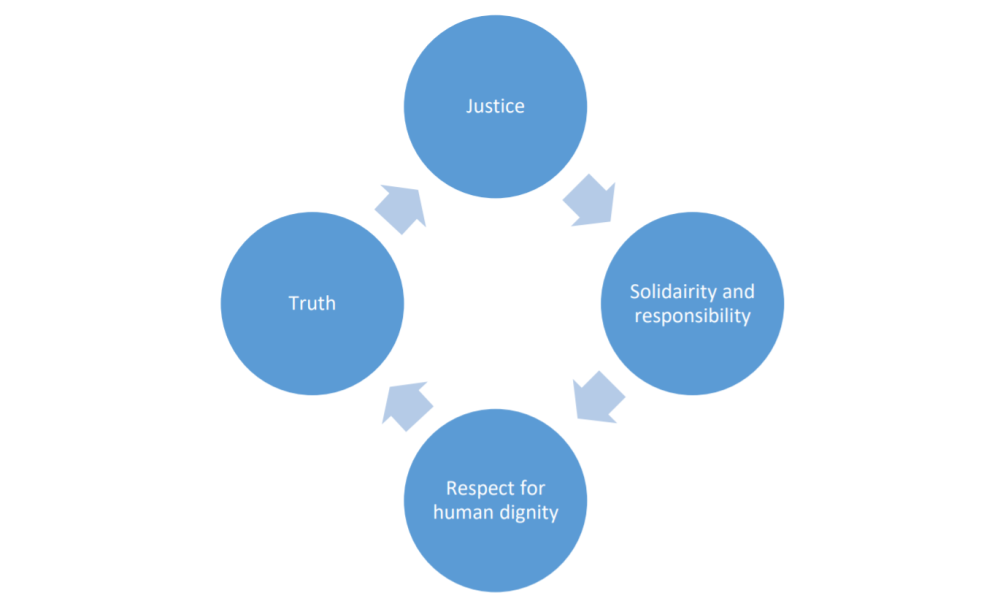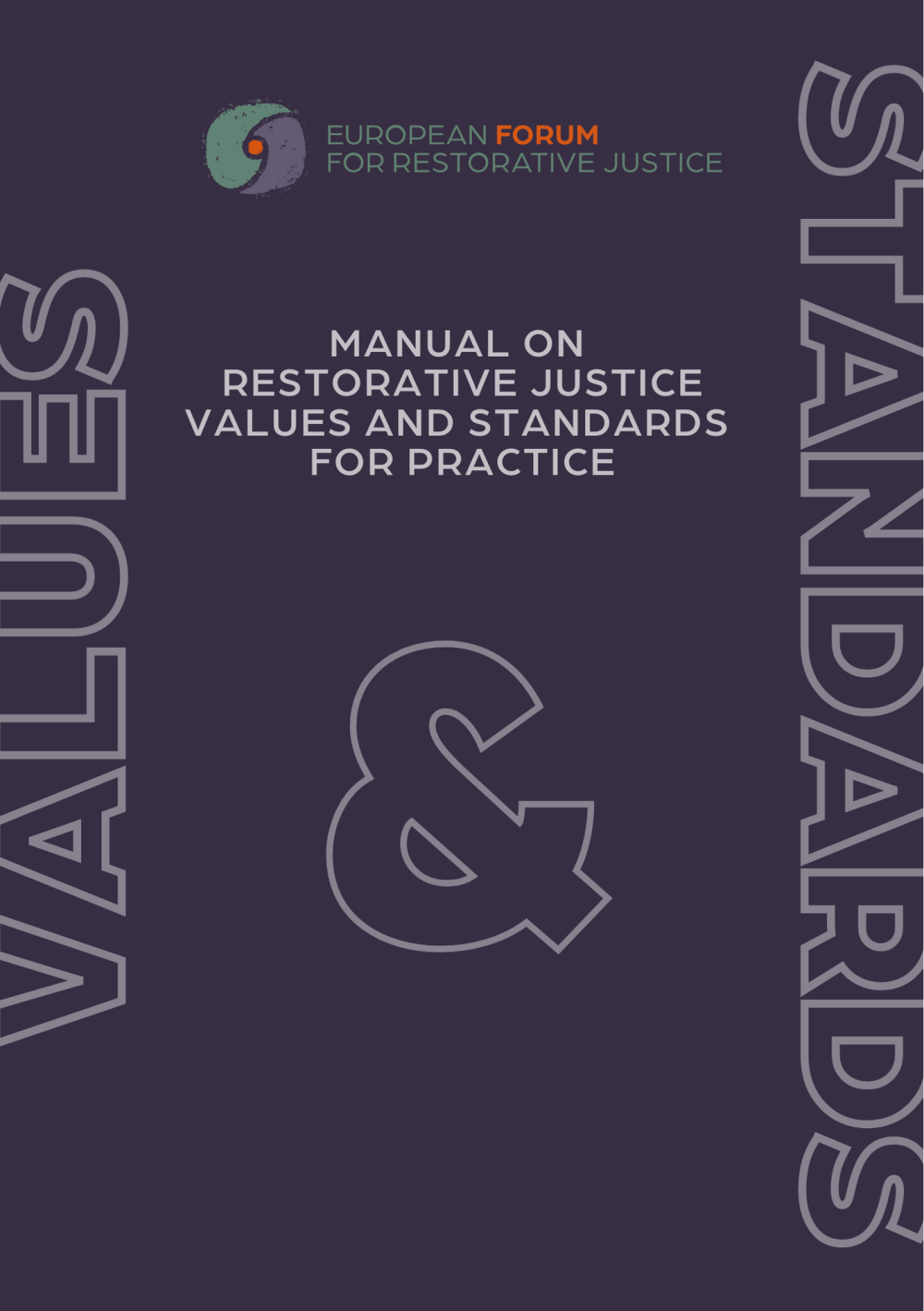Manual on Restorative Justice Values and Standards for Practice
EFRJ, 2021
Values and Standards are essential for high-quality restorative justice processes. The "Manual on Restorative Justice Values and Standards for Practice" is the outcome of an extensive work led by the EFRJ's Values and Standards Committee: Carmen Borg, Antonio Buonatesta, Tim Chapman, Claudia Christen-Schneider, Lars Otto Justad, Olga Kiseleva, Arti Mohan, Ana Pereira, Valeria Tramonte, Edit Törzs, Kris Vanspauwen, Diāna Ziediņa.
Reviewed by members and experts: Ivo Aertsen (Belgium), Darren R Broomfield (Ireland), Clara Casado and the representatives of the Restorative Justice Programme for Adults in Catalonia (Spain), Honorata Czajkowska (Poland), Paul Delaney (Ireland), Bernd Glaeser (Neustart - Austria), Peter Keeley (Ireland), Ian Marder (Ireland), Kieran O’Dwyer (Ireland), Patrizia Patrizi (Italy), Frauke Petzold (Germany), Marta San-Bento (Portugal), Gert Jan Slump (The Netherlands), Annemieke Wolthuis (The Netherlands), Christoph Willms (TOA Serviceburo – Germany)
Edited by: Tim Chapman, Malini Laxminarayan and Kris Vanspauwen




